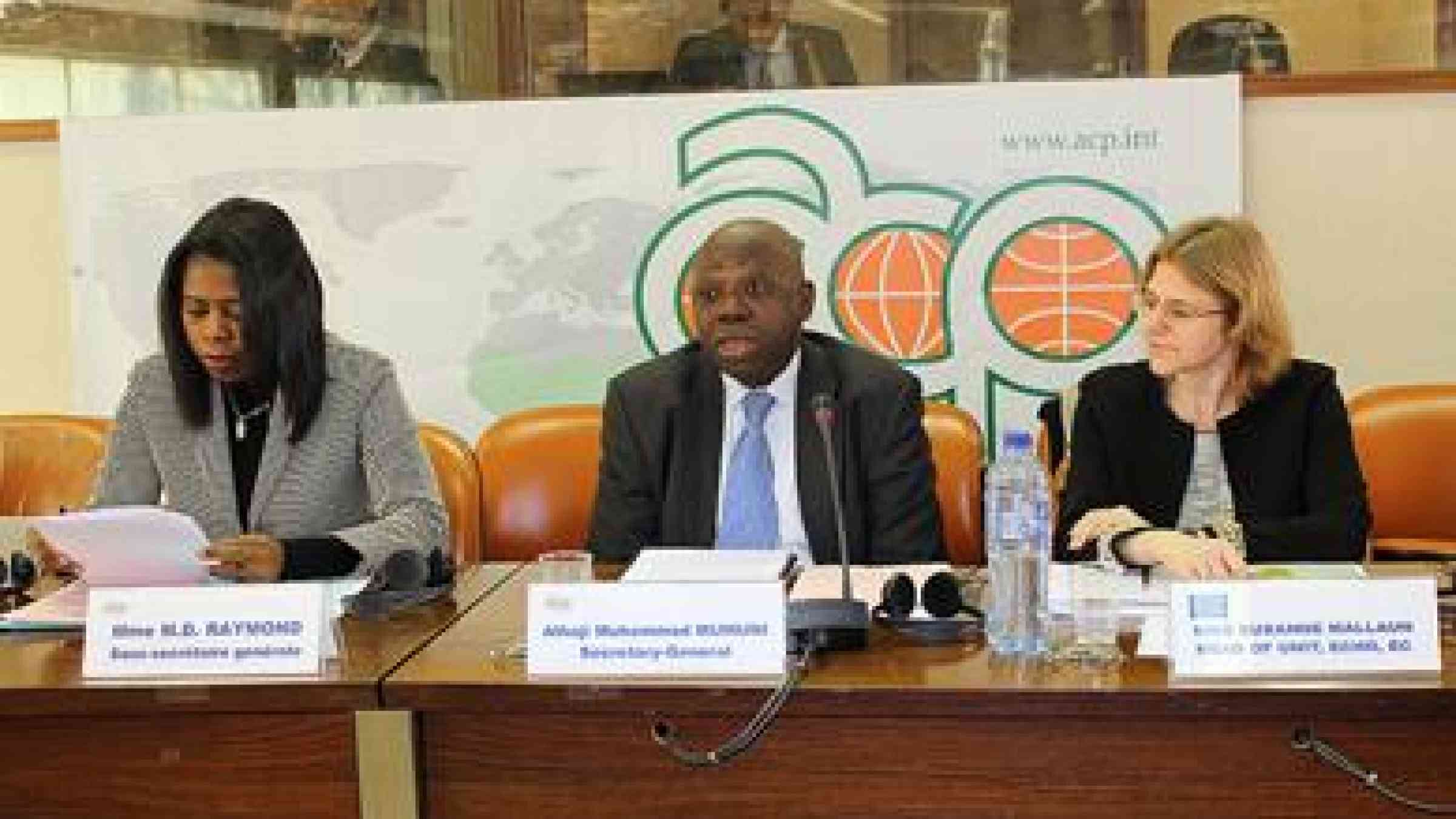New report highlights community-driven actions to curb disaster risk in ACP countries

Brussels - The Secretariat of the African, Caribbean and Pacific (ACP) Group of States today launched a new study that offers a comprehensive view of the various risks faced across its member countries, as well as valuable efforts to reduce them.
The ACP Compendium of Risk Knowledge, financed by the 10th European Development Fund under the Intra-ACP Cooperation envelope for Disaster Risk Reduction, revealed that disaster risk in ACP countries is considerably higher than in other regions, with 12 countries from Sub-Saharan Africa and one country from the Caribbean amongst the 20 most-at-risk from disasters in the world. The report also notes that over a long period of time, ACP countries on average will lose USD 6.9 billion per year from disasters, representing 2.3% of their total GDP.
"This compendium is telling us that disaster risk management is not the same thing as disaster management. While countries in the ACP have had good experience in managing disaster events in the past, it is now time that we start to proactively reduce the underlying drivers of these risks, to stem this growth of human and economic losses. I believe that political leaders, policy makers and practitioners should use this compendium to understand their risks so that they can judge wisely how best to address them,” said ACP Secretary General Alhaji Muhammad Mumuni. (Full speech of the Secretary General)
"The study helps in a practical manner to understand the real nature of risks that countries in the ACP regions face. Reducing disaster risks is at the heart of what we need to do to build the resilience of vulnerable populations, promote sustainable development and address climate change," said Susanne Mallaum, Head of Unit at the European Commission's Directorate-General for Humanitarian Aid and Civil Protection.
Faced with these growing risks, the report also highlights innovative actions by ACP member countries and communities to reduce these risks, and the benefits of this proactive approach to managing risks, instead of managing disaster events.
For example, Vilankulos, a tourist city in Mozambique, despite being struck by a 200 kph Cyclone Flavio in 2007, had zero casualties due to successful pre-emptive evacuation that was led by former Mayor of Suleimade Esep Amuji. Mindful of the possibility of rebuilding back risks, he then proceeded in rebuilding better homes.
"Building back better after the cyclone had many benefits. Not only did we get stronger homes for the next cyclone, but also when we started giving these resilient homes to homeless women, we saw displaced families coming back together. When you start to reduce risks, even disasters sometimes can bring good news,” he said.
Veronica Gordon, President of the Jerry Town Farmers' Association in Jamaica, had the same observation. "In our view it is better to invest in risk reduction than disaster recovery,” she said.
The report, co-authored by Lezlie C. Morinière and Luis Sanchez Zimmerman, uses cutting edge science and case studies to map overall risk in Sub-Saharan Africa, the Caribbean and the Pacific Islands.
The report is released to inform the main agendas of 2015 of what it would take to protect sustainable development in ACP countries, starting with the next disaster risk reduction framework, which will be adopted in March at the 3rd UN World Conference on DRR, in Sendai Japan, the Sustainable Development Goals that will be adopted at the UN Summit in September 2015 in New York, and the new climate change agreement that will be adopted in Paris France later in 2015.
The report will soon be available for download in English, French, Portuguese and Spanish.
For more information, please contact ACP Press Officer Josephine Latu-Sanft, ACP Secretariat. Tel +32 2 7430617 or latu@acp.int.